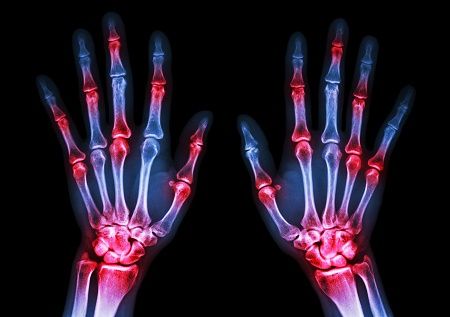Statins Safe for Patients with Rheumatoid Arthritis
The study also found that the overall rate of cardiovascular events was low in the study population, indicating that statins aren’t required for all RA patients.

A large clinical trial of patients with rheumatoid arthritis (RA) found that atorvastatin was safe and reduced low density lipoprotein (LDL) cholesterol significantly compared to placebo.
The study did find that atorvastatin lowered the risk of cardiovascular events, but this primary endpoint was not statistically significant. The study was terminated early due to a low event rate, rendering the primary endpoint findings—unsurprisingly—non-significant.
However, co-senior author Deborah Symmons, MD, MBChB, Professor, Arthritis Research UK Centre for Epidemiology, University of Manchester, Manchester, UK, that this low event rate differentiates the study population from others at high risk of cardiovascular events, such as patients with diabetes.
"Because of the low overall rate of cardiovascular events in the trial population, there is no indication for all patients with rheumatoid arthritis to be prescribed a statin,” said Symmons in a statement. She contrasted that to patients with diabetes, the vast majority of whom are recommended statin therapy.
The double-blind trial included 3002 patients with rheumatoid arthritis who were over 50 years of age or had rheumatoid arthritis for more than 10 years who were randomized to atorvastatin 40 mg daily (n = 1504) or placebo (n = 1498). The mean age of participants was 61 years, 7.6% were <50 years, and 74% were female. Participants were followed for a median of 2.51 years (IQR 1.90-3.49).
The study’s primary endpoint was measured by the time to first cardiovascular event, including cardiovascular death, myocardial infarction, stroke, transient ischemic attack, or any arterial revascularization.
Over the course of the study, 24 patients in the atorvastatin group (1.6%) had a confirmed cardiovascular event, compared to 36 (2.4%) in the placebo group (HR 0.66; 95% CI 0.39-1.11, P = .115; adjusted HR 0.60, 95% CI 0.32-1.15, P = .127). The investigators noted that the 34% reduction (unadjusted) is “in line with the Cholesterol Treatment Trialists’ Collaboration meta-analysis of the effect of statins in other populations.”
By the end of the trial, the atorvastatin group had mean LDL cholesterol levels 0.77 mmol/L lower than the mean LDL cholesterol levels in the placebo group. C-reactive protein levels, a measure of inflammation, were significantly lower in the active treatment group compared to placebo 2.59 mg/L (0.94-6.08) versus 3.60 mg/L (1.47-7.49) (P < .0001).
The study reported no significant differences in rheumatoid arthritis disease activity, severity, or quality of life between the 2 groups.
The safety outcomes were remarkably similar for both treatment groups. There were 298 (19.8%) adverse events in the atorvastatin group compared to 292 (19.5%) in the placebo group (P = .854).
"The trial found that the statin reduced levels of cholesterol by similar amounts as has been seen in other populations studied. The results also show that it is as safe for patients with rheumatoid arthritis to take statins as for the general population," said Symmons.
Despite the early study termination, the authors stressed that the results have important clinical implications for patients with rheumatoid arthritis. They noted that the low event rate indicates that there are many patients, even among those over 50 years or who have had rheumatoid arthritis for over 10 years, who have relatively low risk of cardiovascular disease.
“The decision to prescribe should be based on assessment of the individual RA patient’s risk using, at present, the relevant national or international recommendations and risk assessment tools,” wrote the investigators.
The study, “Trial of atorvastatin for the primary prevention of cardiovascular events in patients with rheumatoid arthritis (TRACE RA): A multicenter, randomized, placebo controlled trial,” was published in Arthritis & Rheumatology.